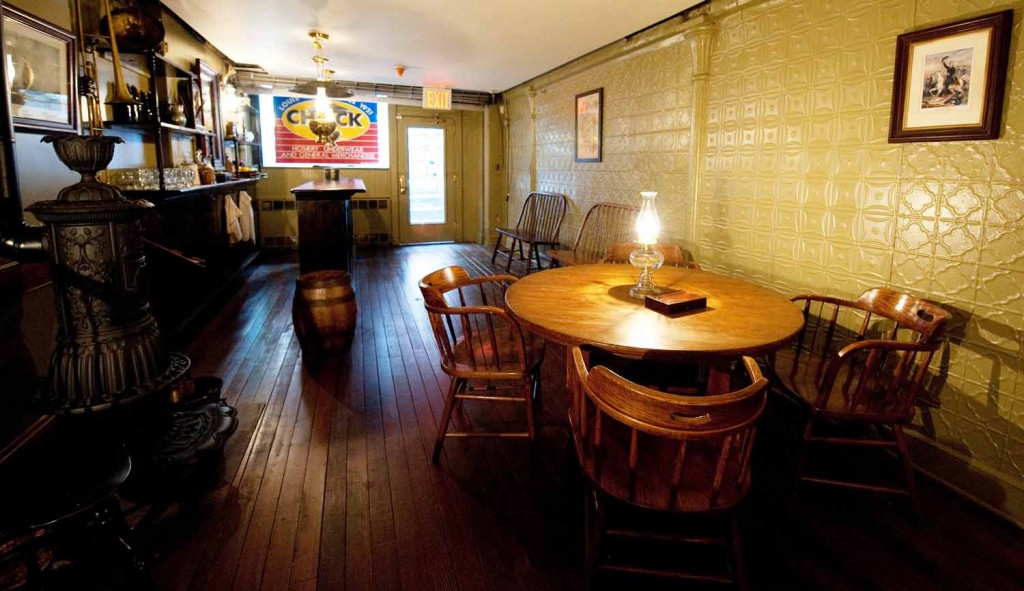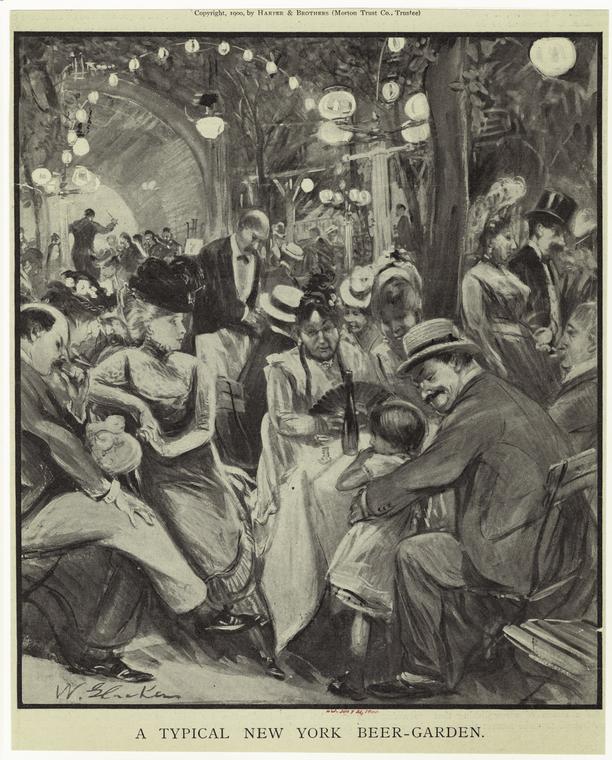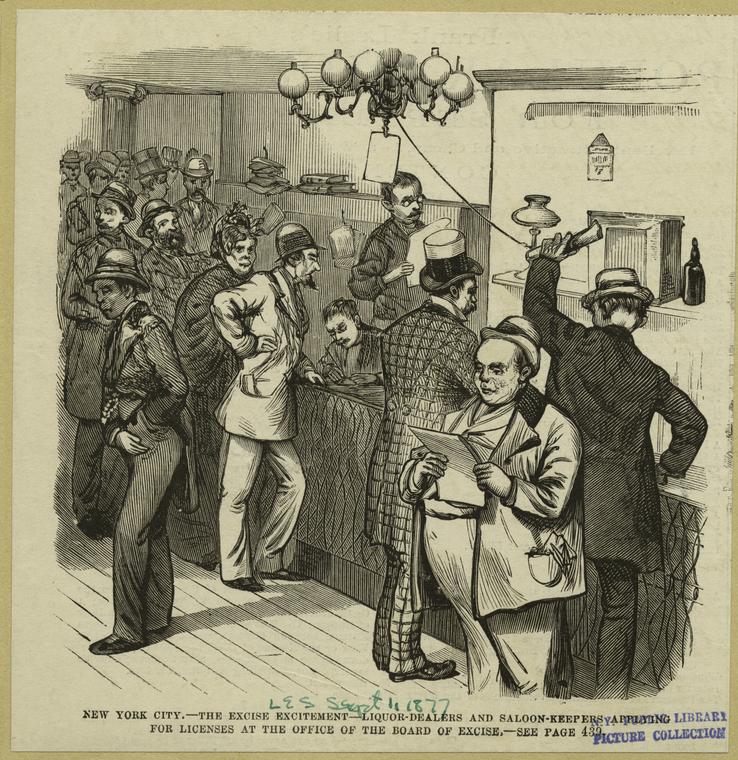Blog Archive
Beer and Morality in the 19th Century
Our upcoming “Shop Life” exhibit re-creates the lager bier saloon operated by John Schneider and his wife Caroline between 1864 and 1886. By 1870, the Schneiders would have been counted among 153,938 German-speaking immigrants living in New York’s Kleindeutschland or “Little Germany”–making the neighborhood the 5th largest German-speaking city in the world.
In an environment characterized by overcrowded living quarters, German saloons served as living rooms for the community, where families gathered with friends and neighbors and established organizations for mutual support. Much to surprise of 19th century observers, the wives and children of German working men also participated in saloon life.
Rather than an scene of drunken dissipation, German immigrants’ liberal consumption of lager was portrayed as a being “free from the vices of Americans”. According to an 1866 New York Times article, John Schneider was one of hundreds of saloonkeepers citywide who received liquor licenses on that day, ensuring that he would comply with New York State’s new excise law. The 1866 law declared that Schneider and his cohorts must: “…Keep the places at which they…sell, give, and dispose of strong and spirituous liquors, wines, ale and beer, orderly and quiet between the hours of 12 o’clock at night and sunrise, and on Sundays, completely and effectually closed.”
Germans took issue with the mandatory Sunday closure, and viewed the law as calculated attack on their ethnic culture and heritage, ultimately mobilizing on a number of fronts to contest the Sunday prohibition. An 1869 editorial in New York’s most widely read German-language newspaper, the New-Yorker Staats-Zeitung, observed “‘Temperance’ is only a false, calculatingly deceptive name…the rage against alcohol is only needed to put a pretty face on a force designed to control behavior and convert people of different faiths, limiting religious freedom.”
The editors of the Staats-Zeitung argued that temperance advocates sought to undermine the separation of church and state: “The agitation is religious: the beliefs of certain sects should be elevated to the point where they alone rule—meaning that the pulpit politicians, who have already caused so much chaos and disorder, flat themselves with the hope that they will soon annihilate all resistance and control the entire life of the people and the state. The so-called Temperance movement is only a false, calculatingly deceptive name.”
Despite the outcry, a form of this Excise Law remained in effect through “blue laws” until 2003, which dictated that the sale of alcohol was only permitted after 12pm.
— Posted by David Favaloro


